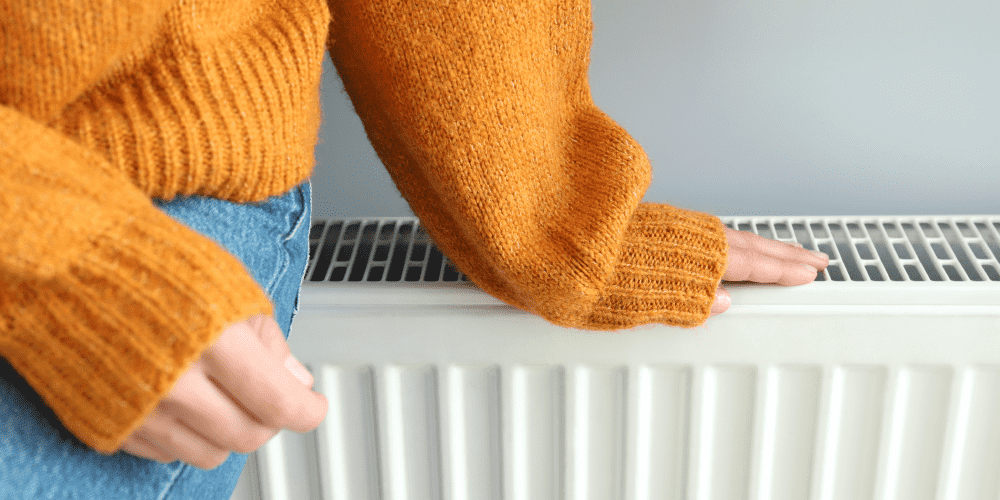Can solar panels be used to heat my radiators and running water?
Wondering if solar panels can help heat your home as well as power it? Here’s how solar energy can be used for heating water and whether it can work with your radiators.
- Do solar panels generate heat or electricity?
- What are solar thermal panels?
- Can solar panels heat my radiators?
- Can solar panels provide hot water?
- What’s the difference between PV and thermal panels?
- Can I combine solar panels with a heat pump?
- What’s the best setup for my home?
- Get expert advice and quotes
Do solar panels generate heat or electricity?
There are two main types of solar panel systems available in Ireland:
- Solar PV panels – generate electricity
- Solar thermal panels – use sunlight to heat water
Most solar panel systems installed in Irish homes are PV systems (short for photovoltaic), which convert sunlight into electricity that can power appliances, lighting, and more.
But when it comes to heating, that’s where solar thermal panels come in.
What are solar thermal panels?
Solar thermal panels (also called solar collectors) use the sun’s energy to directly heat water, which is then stored in a hot water cylinder for use in showers, taps, or occasionally for space heating.
They’re typically installed alongside — not instead of — your existing heating system, and can reduce the amount of energy your boiler or immersion uses to provide hot water.
Solar thermal is ideal for:
- Reducing water heating costs
- Homes with a hot water cylinder
- Households with higher daytime hot water use
Can solar panels heat my radiators?
In most Irish homes, solar panels alone cannot heat radiators directly. Solar thermal systems may assist with space heating, but this is usually limited and works best in well-insulated homes with underfloor heating rather than standard radiators.
Heating your home efficiently with solar usually requires a combination of technologies, such as:
- Solar PV for electricity
- A heat pump for space heating
- Solar thermal or immersion diverter for hot water
Can solar panels provide hot water?
Yes — solar panels can help heat your water, but the method depends on the system:
- Solar thermal systems heat water directly
- Solar PV systems can power an immersion heater or use a power diverter (like an Eddi or iBoost) to heat your water tank using excess solar electricity
This makes solar PV more flexible — you get electricity for your whole home and still have the option to heat water with leftover energy.
What’s the difference between PV and thermal panels?
| Feature | Solar PV Panels | Solar Thermal Panels |
|---|---|---|
| Produces | Electricity | Hot water |
| Appearance | Usually rectangular, dark panels | Tubes or flat-plate collectors |
| Can power radiators? | No (but can support heat pumps) | Sometimes, but limited |
| Works on cloudy days | Yes, but lower output | Yes, but with reduced efficiency |
| Maintenance | Low | Low to moderate |
Can I combine solar panels with a heat pump?
Yes — and it’s becoming increasingly popular in Ireland. Heat pumps use electricity to efficiently heat your home and water. When paired with solar PV, you can power the heat pump using your own renewable energy, making your home even more efficient and reducing reliance on the grid.
It’s a particularly strong solution for new builds, retrofits, or homes aiming for BER upgrades and lower carbon emissions.
What’s the best setup for my home?
If your goal is to cut electricity bills, power appliances, and use excess energy smartly, solar PV with a diverter is usually the best all-round choice. If your main focus is reducing your water heating costs, solar thermal may also be worth considering.
In many cases, homeowners benefit from a mix of technologies — and it’s important to choose a setup that works with your existing heating system, roof space, and energy usage.
Get expert advice and quotes
Need help deciding? At Solarpanels.ie, we connect you with trusted solar professionals in Ireland. Whether you’re interested in PV, thermal, or both, you can get advice on the best system for your home — and receive quotes from qualified installers near you.


